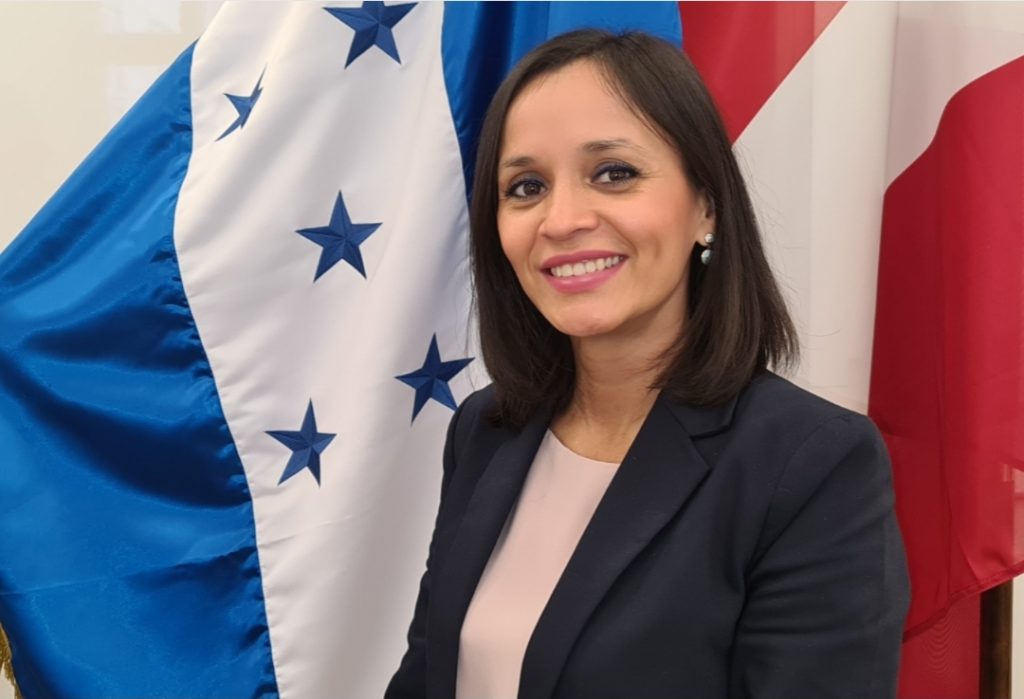
Honduras feiert 200 Jahre Unabhängigkeit
Die Republik Honduras ist eines der zentralamerikanischen Länder, das den Vorteil hat, Zugang zu zwei Ozeanen zu haben, nämlich den Atlantik und den Pazifik. Mit seiner opulenten Vegetation (48% des Landes sind von Wald bedeckt), den kilometerlangen Stränden und dem reichen kulturellen Erbe ist es eines der begehrtesten exotischen Reiseziele der Welt.
Die Geschichte zeigt, dass das Gebiet des heutigen Honduras mindestens 1000 Jahre vor Christus von den Mayas bewohnt wurde, die aus bisher unerklärlichen Gründen um 900 n. Chr. dieses Gebiet verließen.
Dieses tropische Land erhielt seinen Namen mit der Ankunft von Christoph Kolumbus, der 1502 von seinem Schiff in der Nähe von Trujillo an Land ging und zum ersten Mal auf dem Boden des amerikanischen Kontinents landete. Er nannte es Honduras (Tiefe), was auf das tiefe Wasser der karibischen Küste hindeutet.
Anlässlich des 200. Jahrestages der Unabhängigkeit der Republik Honduras sprachen wir für das Magazin Diplomacy and Commerce Austria mit Frau Lesly Amalia Sanchez Moncada, Geschäftsträgerin der Republik Honduras in der Republik Österreich, über das große Jubiläum von Honduras, über 150 Jahre seit der Aufnahme diplomatischer Beziehungen zwischen Österreich und Honduras, den Ökotourismus und Reiseziele, Wirtschaft und Auslandsinvestitionen, Kaffee, aber auch andere Güter, die die Visitenkarte dieses zentralamerikanischen Landes sind.
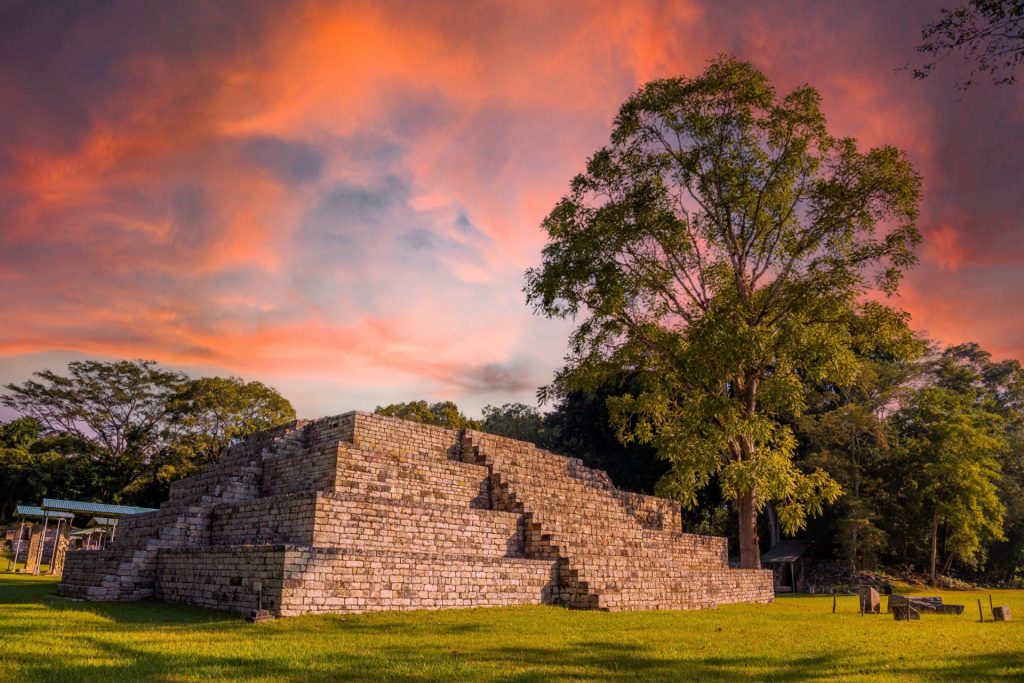
In diesem Jahr feiert die Republik Honduras 200 Jahre seit ihrer Unabhängigkeitserklärung. Ist für den 15. September anlässlich eines so großen Jubiläums eine große Feier geplant?
Ja, Honduras und die anderen zentralamerikanischen Länder feiern 200 Jahre Unabhängigkeit, ohne Zweifel ist es ein besonders wichtiges Datum für uns. 200 Jahre seit unsere Vorfahren sich aufmachten, Honduras als freie, souveräne und unabhängige Nation zu etablieren. Wir planen eine Veranstaltung zum Gedenken an die Zweihundertjahrfeier. Wir wissen aber noch nicht, ob die Beschränkungen im September es uns ermöglichen, eine große Veranstaltung durchzuführen. Sicher ist aber, dass wir den ganzen September über verschiedene Aktivitäten haben werden, die es uns ermöglichen, Ihnen unser Land näher zu bringen und auch ein kleines Stück Honduras durch kulturelle, touristische und kommerzielle Aktivitäten nach Österreich zu bringen – damit wir gemeinsam unsere Unabhängigkeit feiern können.
2021 wird auch der 150. Jahrestag seit der Aufnahme diplomatischer Beziehungen zwischen der Republik Honduras und der Republik Österreich gefeiert. Können Sie uns sagen, wie die Beziehungen bisher liefen und gibt es eine Möglichkeit, Ihrer Meinung nach, diese Beziehungen noch zu verbessern?
Die Beziehung zwischen Honduras und Österreich war in den letzten Jahren auf die Unterstützung von Nichtregierungsorganisationen, die humanitäre Hilfe durch NGOs wie die Kindernothilfe geleistet haben, und die Unterstützung bei der Entsendung von Freiwilligen von NPH Österreich fokussiert. Wir hatten die Unterstützung Österreichs bei der Finanzierung von zinsgünstigen Krediten, mit denen wir Projekte in den Bereichen Bildung, Wasser und Gesundheit durchgeführt haben. Wir haben auch an der Infrastruktur mit Unterstützung der Österreichischen Entwicklungsbank (OeEB) gearbeitet, durch eine Kreditlinie bei der Central American Bank for Economic Integration (CABEI).
Einer der Hauptgründe für die Eröffnung der Botschaft von Honduras in Österreich im Jahr 2018 war die Stärkung der bilateralen Beziehungen zwischen beiden Ländern. Wir fördern Initiativen zur Stärkung der Freundschaft, Zusammenarbeit und Investitionen. Um dies zu erreichen, arbeiten wir mit den BMEIA in einem Mechanismus zur Einrichtung politischer Konsultationen, der es ermöglichen wird, die Beziehungen und die Kommunikation zu Themen von Interesse für beide Länder zu stärken. Wir haben auch die österreichische Privatwirtschaft eingeladen, den nationalen Wiederaufbauprozess nach den ETA / IOTA-Hurrikanen zu unterstützen. Ausländische Investitionen sind willkommen und fördern den nachhaltigen Wiederaufbau von Honduras.
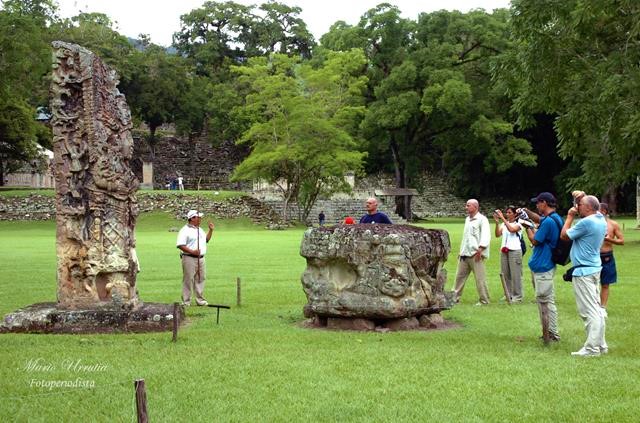
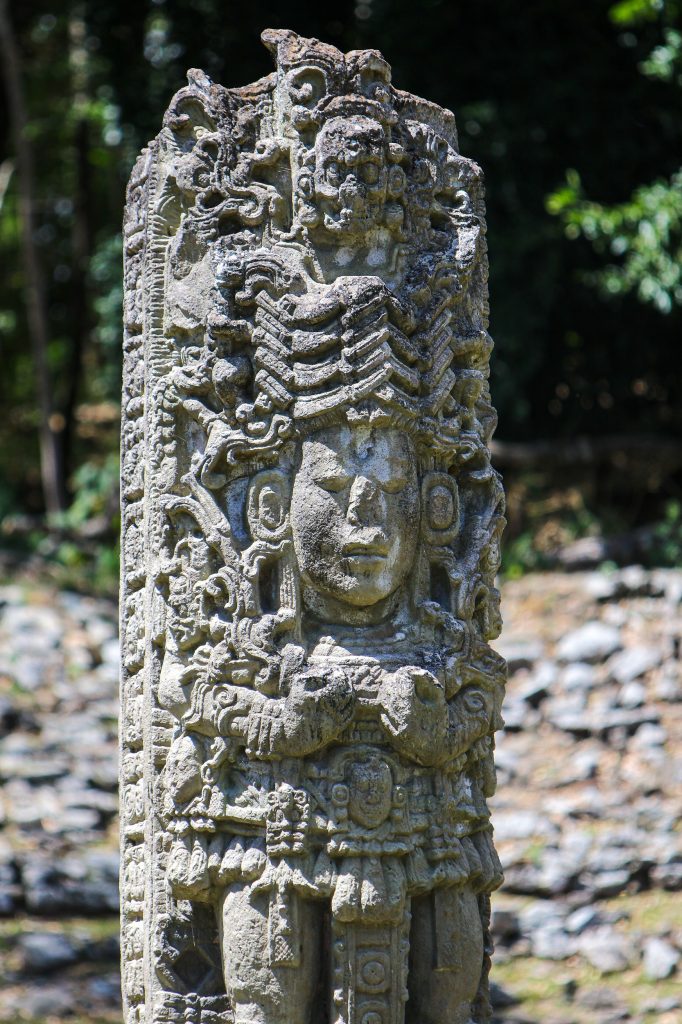
Die durch das Coronavirus verursachte Pandemie hat fast alle Lebens- und Geschäftsbereiche auf dem gesamten Planeten erschwert. Wie ist die aktuelle Situation in Honduras?
Wie jedes andere Land der Welt ist auch Honduras von Covid-19 betroffen, aber ich glaube, dass sich unser Land inmitten der Widrigkeiten erhebt, die Beschränkung uns IT-freundlicher gemacht hat und uns die Möglichkeit gibt, präsent zu sein – Beispiel E-Government: die Regierung von Präsident Juan Orlando Hernández, hat vorgeschlagen, die digitale Regierung zu fördern, um Prozesse und ausländische Direktinvestitionen in Honduras zu erleichtern. Es gibt auch einen starken Impuls für kleine und mittlere Unternehmen und den Konsum lokaler Produkte und Waren. Ich denke, dies hat unsere Wirtschaft begünstigt. Auch Großprojekte werden gefördert, wie der „Palmerola International Airport“, der einer der größten und modernsten Airports im mittelamerikanischen Raum sein wird. Wir haben bereits wichtige Partner, wie den Flughafen München. An dieser Stelle laden wir die österreichischen Flughafenbehörden ein, die Möglichkeiten einer Direktverbindung in unsere Region zu prüfen. Derzeit hat Honduras Direktflüge mit Europa wie Roatán-Mailand und Madrid-San Pedro Sula und wir hoffen, mit der Eröffnung unseres neuen „Palmerola Int. Flughafen” werden es viele mehr.
Ist es angesichts der Pandemie derzeit möglich, nach Honduras zu reisen und unter welchen Bedingungen?
Honduras Grenzen bleiben offen. Es ist also möglich, unser Land zu besuchen und eine Reise in dieses wunderschöne Land zu planen. Dazu benötigen Personen, die nach Honduras einreisen, einen Covid-19-Negativtest für diejenigen, die noch nicht geimpft sind und es gilt die uneingeschränkte Einreise für Personen mit vollständigem Impfausweis. Dies ist möglich, weil wir Fortschritte im Impfprozess für unsere Bevölkerung machen. Wir hoffen, dass durch das Erreichen der sogenannten „Herdenimmunisierung“ auch die Einschränkungen wie die Verwendung von Masken aufgehoben werden können.
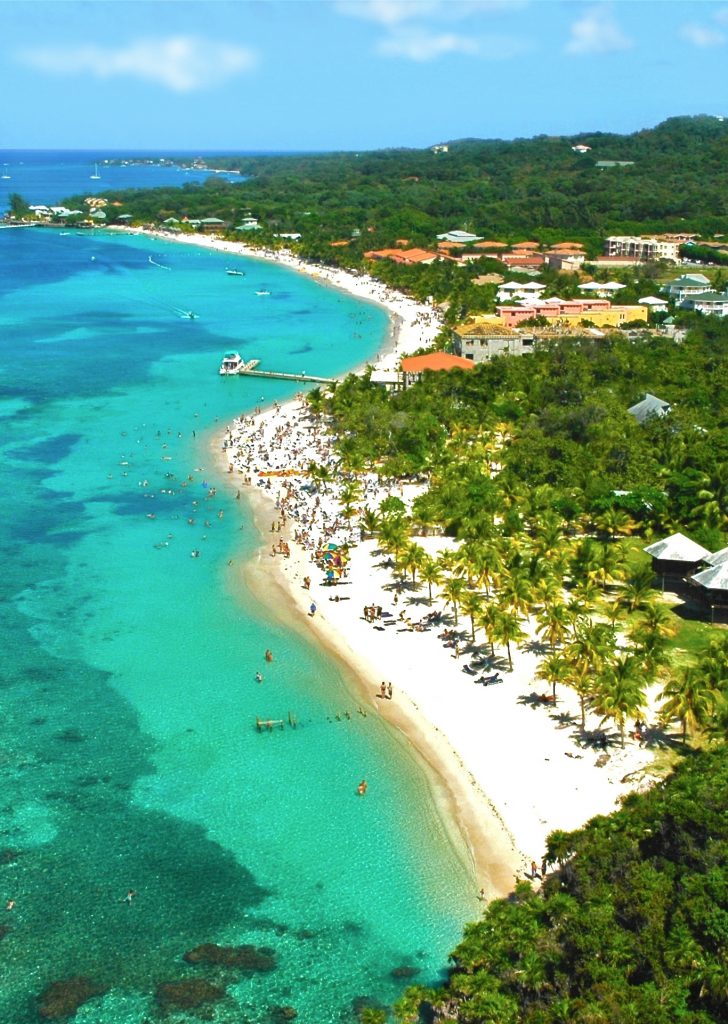
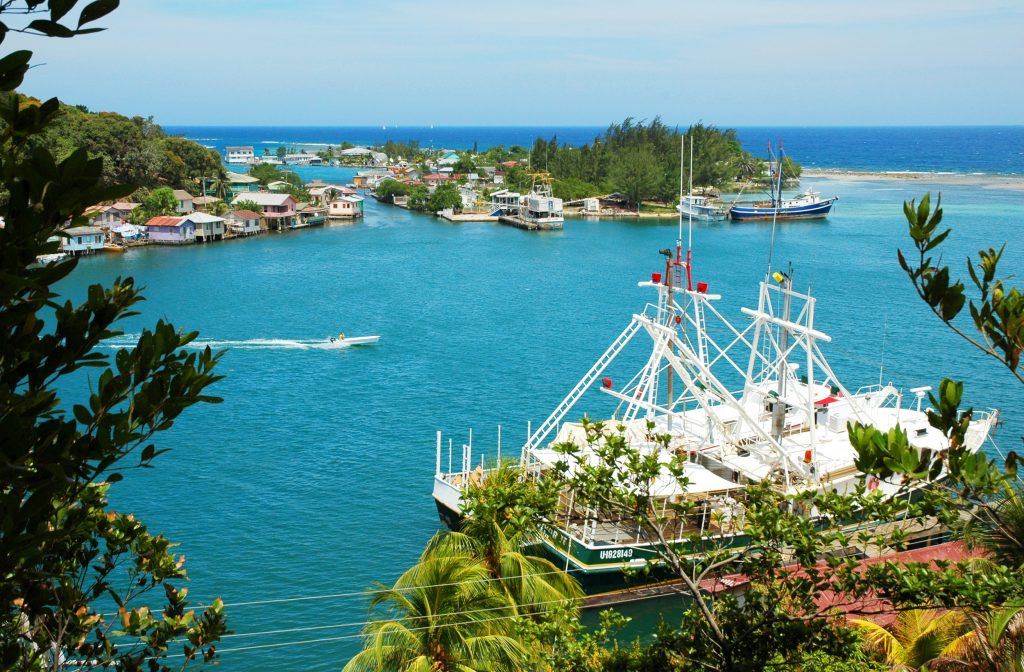
Apropos Tourismus, welche Reiseziele würden Sie empfehlen, wenn es um Sommer- Öko- und Erholungstourismus geht?
Honduras hat mehrere ideale Orte für den ökologischen Tourismus. Ich glaube, dass diese Art von Aktivitäten in den letzten Jahren stark an Bedeutung gewonnen hat, auch dank der Tatsache, dass die Regierung diese Art von Aktivitäten nicht nur für den lokalen Tourismus, sondern auch für internationale Touristen, die dem Lärm der Städte entfliehen und in Abenteuerreisen, Pflanzen- und Tierbeobachtungen usw. eintauchen möchten, fördert. Für diejenigen, die unser Land besuchen möchten, kann ich eine Tour durch den Nationalpark „Montaña de Celaque“ empfehlen. Ciudad Blanca liegt im Biosphärenreservat des Flusses Plátano und „La Ceiba“ für Abenteuerreisen.
Honduras zählt mindestens 8.000 verschiedene Pflanzenarten und mehr als 700 Vogelarten, für diejenigen, die sich für Vogelbeobachtung interessieren. Aber wenn Sie einen Badeurlaub und warmes, kristallklares Wasser mit weichem weißen Sand genießen möchten, dürfen Sie eine Reise durch unser zauberhaftes Archipel mit seinen drei wunderschönen Inseln nicht verpassen: Roatán, Guanaja und Útila in der honduranischen Karibik. Diese drei Inseln sind dafür bekannt, die schönsten in der zentralamerikanischen Region zu sein, wir haben auch das größte Korallenriff nach Australien.
In Roatán können Sie verschiedene Aktivitäten genießen, diese Insel ist die größte und Teil des riesigen mesoamerikanischen Riffsystems. Roatán ist weltweit bekannt für seine Strände, Tauchplätze und sein Meeresleben.
Útila, das sich das ganze Jahr über als einer der besten Orte der Welt zum Tauchen anbietet und das zu wirklich niedrigen Preisen und mit der PADI-Zertifizierung (Professional Association of Diving Instructors). Die Insel ist auch das Rückzugsgebiet des Walhais , dem größten Fisch der Welt.
Wir haben die „Cayos Cochinos“, ein Archipel aus fünfzehn kleinen Inseln, zwei größeren und dreizehn kleinen Inseln oder Inselchen, die in ganz Europa, insbesondere in Spanien und Italien, dank Reality-Shows wie Survivor, die dort aufgenommen wurden, beliebt wurden.
Honduras hat auch ein reiches historisches Erbe. Was muss ein Tourist vom kulturellen Erbe sehen, wenn er Ihr Land besucht?
Das ist richtig, wir sind ein Land mit einer wichtigen kulturellen Vielfalt, ein Erbe ist unserere Maya-Kultur im Westen von Honduras, insbesondere in den Copán-Ruinen, dem wichtigsten kulturellen Reiseziel in Honduras, das 1980 von der UNESCO zum archäologischen Weltkulturerbe erklärt wurde. Es ist eine der wichtigsten Überreste der Maya-Zivilisation. Es hat seine Form und Design bewahrt und auch seine Umgebung ist weitgehend erhalten. Der Standort liegt 180 km von San Pedro Sula, der zweitwichtigsten Stadt in Honduras, entfernt. Die Ruinen von Copan haben viele touristische Attraktionen und es braucht mindestens einen Tag, um einen ersten Eindruck zu bekommen.
Darüber hinaus gibt es in Honduras neun kulturell differenzierte ethnische Gruppen, die Chorti, Lenca, Miskito, Nahua, Pech, Tawahka, Tolupán; und die Afro-Nachkommen Garifuna und schwarze Garifuna und englischsprachige Schwarze oder Kreolen.
Jede ethnische Gruppe lebt landesweit in unterschiedlichen Gebieten, was fast jeden Winkel von Honduras mit unterschiedlichen Speisen, Musik, Produkten und kulturellen Aktivitäten bereichert.
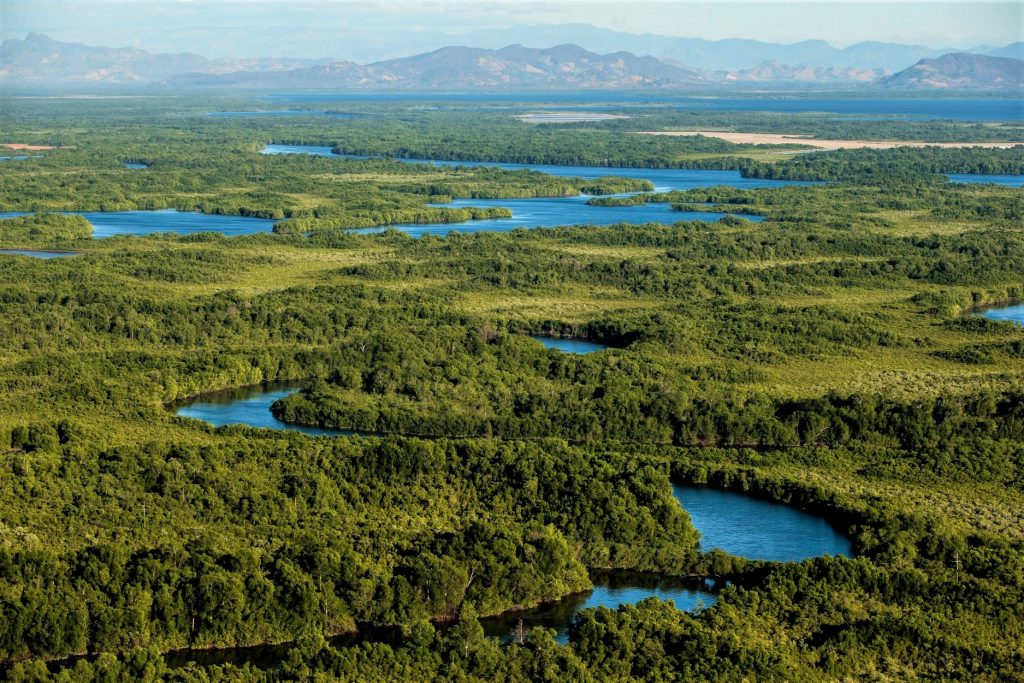
Wie wichtig ist der Tourismus für Honduras und haben Sie Daten darüber, wieviele Touristen Ihr Land jährlich besuchen?
Der Tourismus ist für unser Land besonders wichtig, da er für viele honduranische Familien eine Einkommens- und Arbeitsmöglichkeit darstellt. In den letzten Jahren sind die Einnahmen aus dem Tourismus auf 600,6 Millionen Dollar gestiegen, bei einer Besucheranzahl von 2,3 Millionen Besuchern. Dies hat im letzten Jahr zweifellos einen erheblichen Rückgang erlitten und die Besucherzahlen im Jahr 2020 haben sich gegenüber 2019 um fast 70,1% verringert.
Der Tourismus ist ein Wirtschaftszweig, was sind die anderen wichtigen Wirtschaftszweige in Honduras, die am meisten zum Bruttoeinkommen des Landes beitragen?
Wenn wir über die Sektoren sprechen, die den größten Beitrag zur honduranischen Wirtschaft leisten, können wir auch erwähnen, dass die Finanzintermediation im Land stark zugenommen hat und vor allem die Landwirtschaft. Wie bereits erwähnt, sind wir das Kaffeeproduzentenland Nummer eins. In Zentralamerika produzieren wir Bananen, rohes Palmöl und Melonen, die im Süden unseres Landes angebaut werden und deren Großteil nach Europa exportiert wird. Die Anzahl der Aquakulturen ist in den letzten Jahren stark gewachsen. Unser Land produziert Garnelen, Tilapia und Hummer, all dies ist von erheblicher Bedeutung und trägt direkt zu unserem BIP bei.
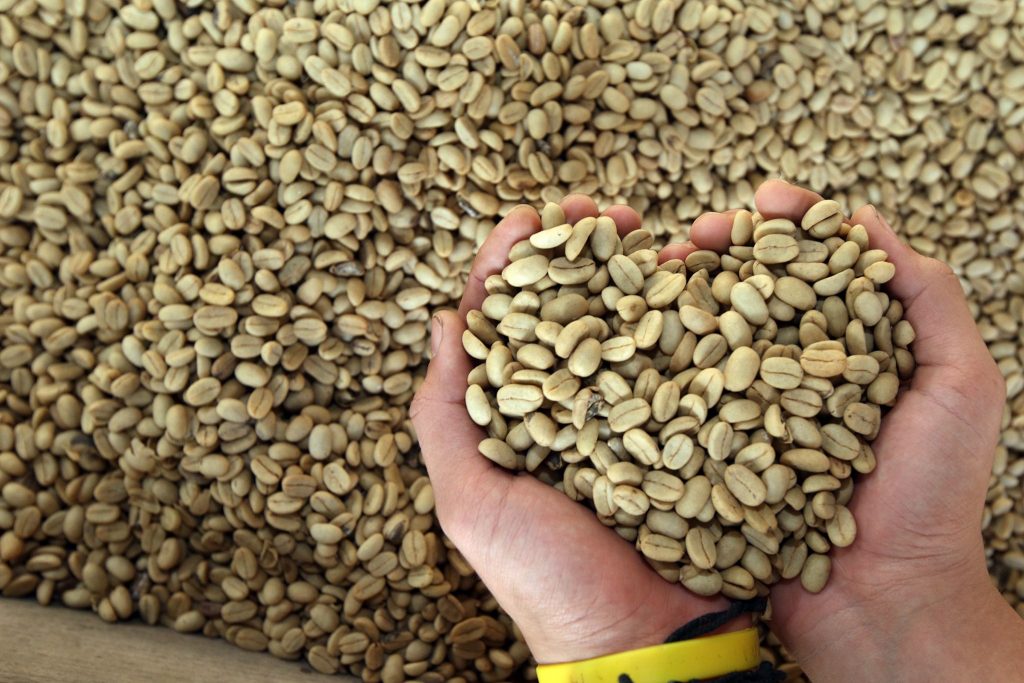
Wieviele Investoren ausländischer Unternehmen sind in Honduras vertreten, in welchen Wirtschaftszweigen sind sie am zahlreichsten und aus welchen Ländern kommt die größte Anzahl an Investoren?
Die Vereinigten Staaten waren und sind seit jeher der größte Investor in Honduras, auf die mindestens drei Viertel der ausländischen Direktinvestitionen in Honduras entfallen. Der privilegierte Ort, den unser Land mit Zugang zum Atlantischen Ozean und zum Pazifischen Ozean einnimmt, hat uns zum Hauptsitz vieler Unternehmen mit ausländischem Kapital gemacht. Mehr als 100 amerikanische Unternehmen sind dort tätig. In den letzten Jahren haben jedoch andere – wie mexikanische Unternehmen – ausländische Direktinvestitionen (FDI) in unserem Land erhöht, gefolgt von mittelamerikanischen (guatemaltekischen) Unternehmen sowie kolumbianischen Investitionen, die 21% der ausländischen Direktinvestitionen ausmachen. Einen niedrigeren Prozentsatz sehen wir bei europäischen Investitionen, bei Unternehmen aus dem Telekommunikationssektor.
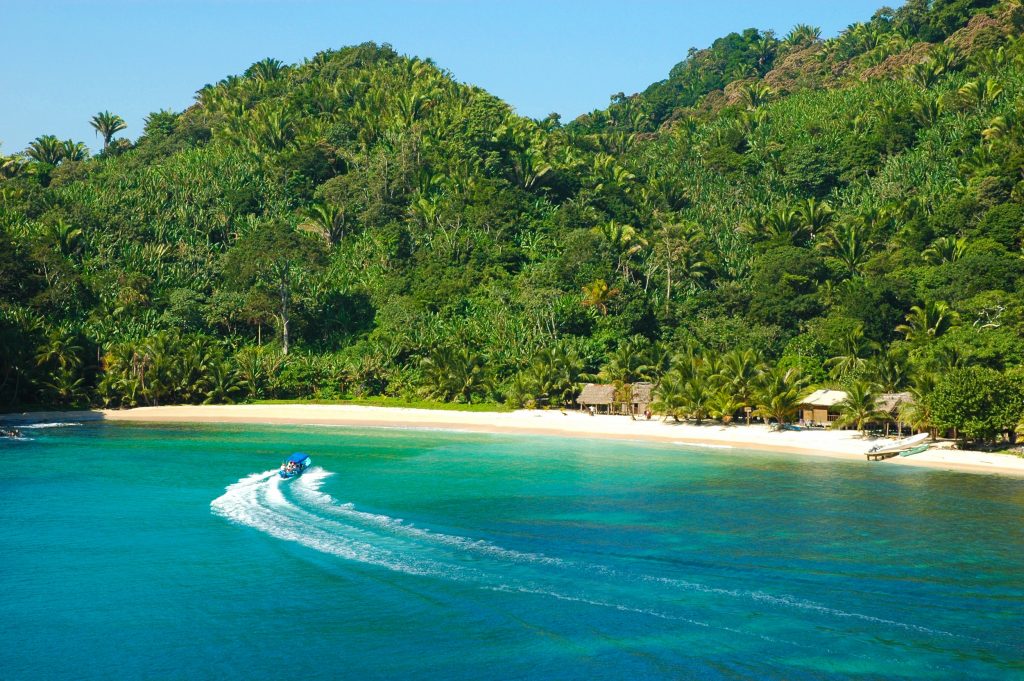
Bei dem Gedanken an Honduras denkt der durchschnittliche Europäer an Kaffee und Bananen. Welche anderen Produkte oder Marken sind die Visitenkarte von Honduras?
Definitiv ist Kaffee unser größtes Aushängeschild, wir belegen derzeit den 5. Platz als Kaffeeproduzent weltweit und sind Nummer eins in der Region. Hondurasischer Kaffee ist weltweit sehr gut aufgestellt, daher freut es mich zu hören, dass Europäer bei Kaffee an Honduras denken! Bananen, Garnelen, Tilapia, Hummer, rohes Palmöl, Kakao, Melonen und Wassermelonen – insgesamt möchten wir auch unseren Landwirtschafts- und Aquakultursektor stark positionieren. Honduras ist auch für den Export von Textilien und Bekleidung sowie für den Export von Kabelbäumen und Automobilkomponenten für Fahrzeuge anerkannt.
ENGLISH:
Honduras celebrates 200 years of independence
The Republic of Honduras is one of the Central American countries that has the advantage of having access to two oceans, namely the Atlantic and the Pacific. With its lush vegetation (48% of the country is covered by forest), miles of beaches, and rich cultural heritage, it is one of the most sought-after exotic travel destinations in the world.
History shows that the area of what is now Honduras was inhabited at least 1000 years before Christ by the Mayans, who left this area around 900 AD for reasons that were previously inexplicable.
This tropical land got its name with the arrival of Christopher Columbus, who disembarked from his ship near Trujillo in 1502 and landed on the American continent for the first time. He named it Honduras (deep), which suggests the deep waters of the Caribbean coast.
On the occasion of the 200th anniversary of the independence of the Republic of Honduras, we spoke to Ms. Lesly Amalia Sanchez Moncada, Chargé d’affaires of the Republic of Honduras in the Republic of Austria, for the magazine Diplomacy and Commerce Austria, about the great anniversary of Honduras, over 150 years since the establishment of diplomatic relations between Austria and Honduras, ecotourism and travel destinations, economy and foreign investments, coffee, but also other goods that are the calling card of this Central American country.
This year the Republic of Honduras celebrates 200 years since its declaration of independence. Is there a big celebration planned for September 15th on the occasion of such a big anniversary?
Yes, Honduras and the other Central American countries are celebrating 200 years of independence, without a doubt it is a particularly important date for us. 200 years since our ancestors set out to establish Honduras as a free, sovereign and independent nation. We are planning an event to commemorate the bicentenary. We don’t yet know if the September restrictions will allow us to host a major event. What is certain, however, is that we will have various activities throughout September that will enable us to bring our country closer to you and also to bring a small piece of Honduras to Austria through cultural, tourist and commercial activities – so that we can celebrate our independence together can.
In 2021, the 150th anniversary of the establishment of diplomatic relations between the Republic of Honduras and the Republic of Austria will also be celebrated. Can you tell us how the relationships have gone so far, and are there any way you think you can improve these relationships?
The relationship between Honduras and Austria in recent years has focused on supporting non-governmental organizations that have provided humanitarian aid through NGOs such as Kindernothilfe, and on supporting the sending of volunteers from NPH Austria. We had Austria’s support in the financing of low-interest loans with which we carried out projects in the fields of education, water and health. We also worked on the infrastructure with the support of the Austrian Development Bank (OeEB), through a credit line from the Central American Bank for Economic Integration (CABEI).
One of the main reasons for opening the Embassy of Honduras in Austria in 2018 was to strengthen bilateral relations between the two countries. We encourage initiatives to strengthen friendship, collaboration and investment. To achieve this, we are working with the BMEIA in a mechanism to set up political consultations that will allow strengthening relationships and communication on issues of interest to both countries. We have also invited the Austrian private sector to support the national reconstruction process after the ETA / IOTA hurricanes. Foreign investment is welcome and promotes the sustainable reconstruction of Honduras.
The pandemic caused by the coronavirus has made almost all areas of life and business difficult across the planet. How is the current situation in Honduras?
Like every other country in the world, Honduras is also affected by Covid-19, but I believe that our country has risen in the midst of adversity, the restriction has made us more IT-friendly and gives us the opportunity to be present – e-government for example : the government of President Juan Orlando Hernández, has proposed promoting digital government to facilitate processes and FDI in Honduras. There is also a strong impetus for small and medium-sized businesses and the consumption of local products and goods. I think this has benefited our economy.
Large projects are also funded, such as the “Palmerola International Airport”, which will be one of the largest and most modern airports in Central America. We already have important partners such as Munich Airport. At this point we invite the Austrian airport authorities to check the possibilities of a direct connection to our region. Currently, Honduras has direct flights with Europe such as Roatán-Milan and Madrid-San Pedro Sula and we hope that with the opening of our new “Palmerola Int. Airport “there will be many more.
Given the pandemic, is it currently possible to travel to Honduras and under what conditions?
Honduras borders remain open. So it is possible to visit our country and plan a trip to this beautiful country. For this purpose, people entering Honduras need a Covid-19 negative test for those who have not yet been vaccinated and unrestricted entry applies to people with a complete vaccination certificate. This is possible because we are making advances in the vaccination process for our population. We hope that by achieving what is known as “herd immunization”, restrictions such as the use of masks can also be lifted.
Speaking of tourism, what destinations would you recommend when it comes to summer eco and recreational tourism?
Honduras has several ideal locations for ecological tourism. I believe that this type of activity has grown in importance in the last few years, also thanks to the fact that the government supports this type of activity not only for local tourism but also for international tourists who want to get away from the noise of the cities and want to immerse themselves in adventure travel, plant and animal observation, etc. For those who want to visit our country, I can recommend a tour through the national park “Montaña de Celaque”. Ciudad Blanca is located in the biosphere reserve of the Plátano river and “La Ceiba” for adventure travel.
Honduras has at least 8,000 different species of flora and more than 700 species of birds, for those interested in bird watching. But if you want to enjoy a beach holiday and warm, crystal clear water with soft white sand, you cannot miss a trip through our enchanting archipelago with its three beautiful islands: Roatán, Guanaja and Útila in the Honduran Caribbean. These three islands are known to be the most beautiful in the Central American region, we also have the largest coral reef after Australia.
You can enjoy various activities in Roatán, this island is the largest and part of the vast Mesoamerican reef system. Roatán is known worldwide for its beaches, dive sites and marine life.
Útila, which is one of the best places in the world to dive all year round, at really low prices and with PADI certification (Professional Association of Diving Instructors). The island is also the retreat of the whale shark, the largest fish in the world.
We have the “Cayos Cochinos”, an archipelago made up of fifteen small islands, two larger and thirteen small islands or islets that have become popular across Europe, particularly in Spain and Italy, thanks to reality shows like Survivor that were recorded there.
Honduras also has a rich historical heritage. What does a tourist have to see of the cultural heritage when visiting your country?
That’s right, we are a country with an important cultural diversity, a legacy is our Mayan culture in western Honduras, especially in the Copán ruins, the main cultural destination in Honduras, which was declared a World Archaeological Heritage by UNESCO in 1980 . It is one of the most important remains of the Mayan civilization. It has retained its shape and design, and its surroundings have largely been preserved. The site is 180 km from San Pedro Sula, the second most important city in Honduras. The Copan Ruins have many tourist attractions and it takes at least a day to get a first impression.
In addition, there are nine culturally differentiated ethnic groups in Honduras, the Chorti, Lenca, Miskito, Nahua, Pech, Tawahka, Tolupán; and the Afro descendants Garifuna and black Garifuna and English-speaking blacks or Creoles.
Each ethnic group lives in different areas across the country, which enriches almost every corner of Honduras with different food, music, products and cultural activities.
How important is tourism to Honduras and do you have data on how many tourists visit your country annually?
Tourism is particularly important for our country as it is an income and job opportunity for many Honduran families. In the past few years, tourism income has risen to $ 600.6 million with a visitor count of 2.3 million. This has undoubtedly suffered a significant drop in the past year and visitor numbers in 2020 have decreased by almost 70.1% compared to 2019.
Tourism is an industry, what are the other major industries in Honduras that contribute the most to the country’s gross income?
When we talk about the sectors that make the greatest contribution to the Honduran economy, we can also mention that financial intermediation in the country has grown significantly, and agriculture in particular. As already mentioned, we are the number one coffee producing country. In Central America we produce bananas, raw palm oil and melons, which are grown in the south of our country and most of which are exported to Europe. The number of aquacultures has grown rapidly in recent years. Our country produces shrimp, tilapia and lobster, all of which are significant and contribute directly to our GDP.
How many foreign company investors are there in Honduras, which industries are the most numerous in and which countries have the largest number of investors?
The United States has always been, and has always been, the largest investor in Honduras, which accounts for at least three-quarters of FDI in Honduras. The privileged place our country occupies with access to the Atlantic Ocean and the Pacific Ocean has made us the headquarters of many companies with foreign capital.
More than 100 American companies operate there. However, in recent years others – like Mexican companies – have increased Foreign Direct Investment (FDI) in our country, followed by Central American (Guatemalan) companies, as well as Colombian investments, which make up 21% of FDI. We see a lower percentage in European investments, in companies from the telecommunications sector.
When thinking about Honduras, the average European thinks of coffee and bananas. What other products or brands are Honduras’ Visiting cards?
Coffee is definitely our biggest figurehead, we currently occupy 5th place as a coffee producer worldwide and are number one in the region. Hondurasian coffee is very well positioned worldwide, so I am pleased to hear that Europeans think of Honduras when they think of coffee! Bananas, shrimp, tilapia, lobster, raw palm oil, cocoa, melons and watermelons – overall, we would also like to position our agricultural and aquaculture sector strongly. Honduras is also recognized for the export of textiles and clothing, as well as the export of wire harnesses and automotive components for vehicles.
Svetlana Nenadovic Glusac
Fotos: Botschaft von Republik Honduras in Österreich